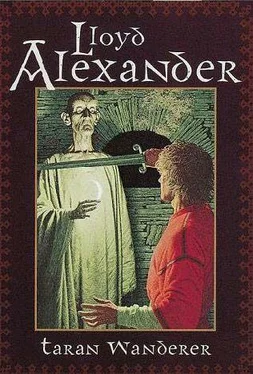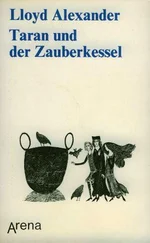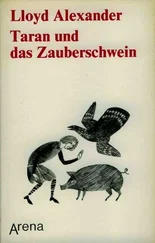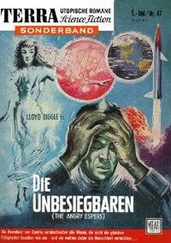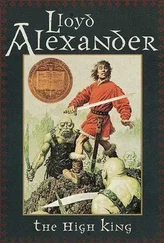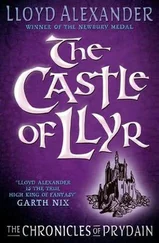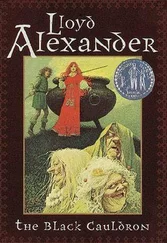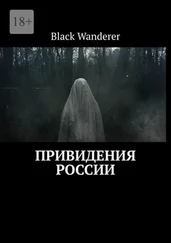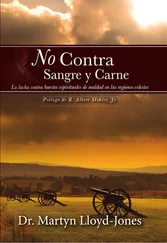Drudwas shook his head. "You owe us no service or duty, Wanderer. We welcome your swords, but will not ask for them."
"They are yours nonetheless," Taran replied, and Gurgi nodded agreement. "Will you heed me? Nine may stand against a dozen and win the day. But with Dorath, number counts less than skill. Were he alone I would still fear him as much as twelve. He will fight shrewdly and strive to gain the most at least cost. We must answer him in kind." The Commot men listened carefully as Taran then spoke of a ruse to make the raiders believe themselves outnumbered, and to attack where Dorath would expect no more than feeble defense.
"If two men were to lie waiting in the sheepfold and two in the cattle pen, ready to spring up," Taran said, "they might take the band unawares and hold them a few moments while the rest of us attack from ambush in the rear. At the same time, if the women of your households set up a din with rakes and hoes, it would seem other swordsmen had hastened to join us."
Drudwas thought a long moment, then nodded. "Your plan may be sound, Wanderer. But I fear for those in the pens, as they must bear the brunt for all of us. If aught should go awry, small chance of escape would they have."
"I shall be one to keep watch in the sheepfold," Taran began.
"And I the other," Llassar broke in quickly.
Drudwas frowned. "I would not spare you because you are my son. You are a good lad and gentle with the flock. I think of your years…"
"The flock is in my charge," Llassar cried. "By right my place is with the Wanderer."
The men spoke hurriedly among themselves, at last agreeing that Llassar would keep watch with Taran, while Drudwas stood guard over the cattle along with Gurgi who, fearful though he was, refused to be any farther from Taran's side. By the time all plans were set and the Commot men posted among the trees just beyond the sheepfold, a full moon had risen above thin clouds. The cold light sharpened the edges of the shadows and the outlines of brush and branches. In the fold Taran and Llassar crouched amid the restless flock.
For a time neither spoke. In the bright moonlight the face of Llassar seemed to Taran more boyish than before; he saw the youth was afraid and making all effort to hide it. Though uneasy himself, he grinned assuringly at Llassar. Drudwas,had been right. The boy was young, untried. And yet― Taran smiled, knowing that he himself, at Llassar's age, would have claimed the same right.
"Your plan is good, Wanderer," Llassar said at last in a hushed voice, speaking, Taran knew, more to ease his own disquiet than anything else. "Better than we should have done. It cannot fail."
"All plans can fail," Taran said, almost harshly. He fell silent then. Fears had begun stirring in him like leaves in a chill wind. Sweat drenched his body under the fleece jacket. He had come to Isav unknown, unproven, yet the men of the Commot had willingly heeded him and willingly put their fate in his hands. They had accepted his plan when another might have served better; should it fail, though all their lives could be forfeit, the blame would be his alone. He gripped the hilt of his sword and strained his eyes to peer into the darkness. There was no movement, and even the shadows seemed frozen.
"You are called Wanderer," Llassar went on quietly, with some shyness. "To my mind, one who wanders must as well be one who seeks. Is this true?"
Taran shook his head. "I sought once to be a smith and once to be a weaver. And once a potter. But that is over. Now, perhaps I must wander without seeking."
"If you seek nothing," Llassar said with a friendly laugh, "then you have little chance of finding it. Our life is not easy here," he went on. "It is not willingness that lacks, but knowledge. The Sons of Don have long held Prydain against the Lord of Annuvin, and for their protection we are grateful; yet the secrets Arawn Death-Lord stole from us― to regain them, my father says, would give us stouter shield and sword than even the battle hosts of Prince Gwydion himself. But for all that, Isav is my home and I am well-content in it." Llassar grinned. "I do not envy you, Wanderer."
Taran did not answer for a time. Then he murmured, "No, it is I who envy you."
They said no more, listening alertly to every sound as the night wore away and the moon, fading behind thickening clouds, lost shape and its light spread like pale mist. In a while Llassar blew out his breath in relief. "They will not come," he said. "They will pass us by."
Even as he spoke, the darkness shattered in fragments that turned into the figures of armed warriors. Taran sprang to his feet as the gate burst open.
Taran sounded his battle horn, then flung himself upon the warrior who cried out in surprise and stumbled backward. Llassar had leaped up at the same instant as Taran, and the shepherd plunged against the press of the attackers at the gate, thrusting with his spear. Taran struck out blindly, struggling not only against the raiders but against the sudden terror that his plan had failed, that the outlaws had come too silently, too swiftly. In another moment, above the frantic bleating of the frightened animals, a great shout burst from the Commot men as they rose from the cover of the trees, and from the huts came the clash of iron upon iron.
At the sheepfold the outlaws hesitated. Llassar's opponent had fallen. Taran glimpsed the boy spring past him and strike again with his spear. The attack wavered at the gate, as the raiders turned their weapons against the men of Isav. But one warrior, growling like a wild beast, long knife upraised, raced into the pen as if to wreak all the destruction he could, and Taran grappled with the man who spun about and slashed at him. It was Gloff.
The warrior recognized him; Gloff's first astonishment changed to an ugly grin almost of pleasure and eagerness, as he shifted the knife in his hand. Gloff lunged and Taran flung up his weapon to ward against the blow. But the warrior leaped forward, his free hand clawing at Taran's eyes, and his blade flickered as its point drove swiftly in a killing stroke. A figure plunged between them. It was Llassar. Taran shouted a warning as the boy strove to catch the blow on his spear shaft. Snarling, Gloff turned his attack and struck viciously at Llassar. The shepherd fell. With a cry of rage Taran raised his sword. Suddenly, Drudwas was beside him. Gloff shrieked as the blade of the husbandman chopped downward.
Under the onslaught of the Commot folk Dorath's warriors fell back. Amid the turmoil of racing men Taran found himself borne away from the fold. Daring a backward glance he could glimpse neither Drudwas nor Llassar; in fury, he pressed onward. Torches flared, and he saw that the women and girls of Isav had joined their men, flailing with hoes, rakes, and pitchforks at the raiders. Taran cast about for Gurgi and shouted his name, but his voice was drowned in the tumult.
A fierce bellowing had risen from the cattle pen as a dark shape burst through the bars. Taran gasped in astonishment to see a furious black bull heaving and plunging among the raiders. On its back clung Gurgi, yelling at the top of his voice, kicking his heels against the powerful animal's flanks, turning its charge against the terrified remainder of Dorath's band.
"They flee!" shouted one of the Commot men.
Taran pressed ahead. The raiders, who had left their mounts at the fringe of trees, now hastened to gain them, caught between the Commot folk and the slashing horns of the enraged bull. Taran glimpsed Dorath astride the sorrel mare and ran to overtake him. But Dorath spurred the steed and galloped into the wood.
Taran turned and raced to the stables, whistling for Melynlas. One of the Commot men caught at his arm and cried, "The day is ours, Wanderer!" Only then did Taran realize the sounds of the fray had ceased. Dorath himself had vanished. Taran hurried to the sheepfold where the wife of Drudwas knelt, her arms about her son.
Читать дальше
